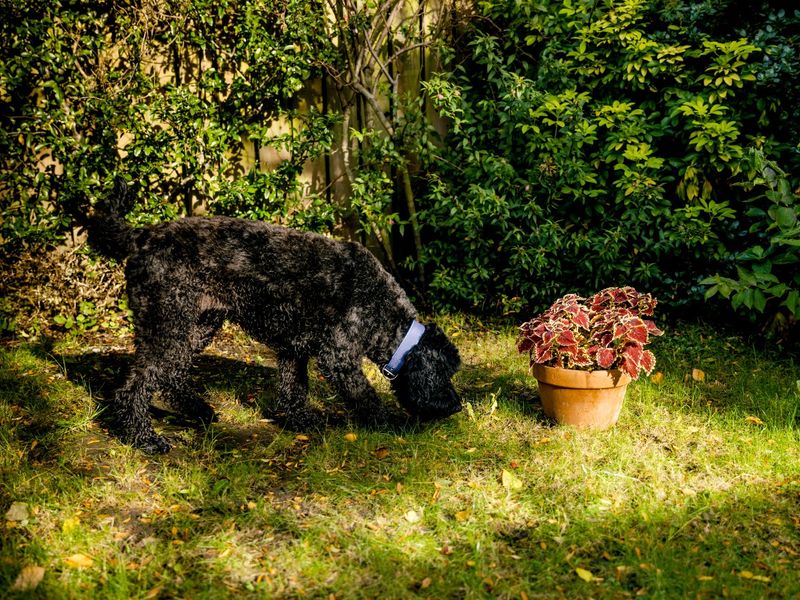Why your dog eats grass and what to do about it
Ever wonder why your dog loves eating grass so much? Here are some possible reasons behind it.

It can be strange or concerning to see your dog eating grass when you’re out and about together. It’s usually nothing to worry about – but why do they do it?
This page sheds light on some of the possible reasons behind your furry foodie’s grass habit, and what you can do about it.
Why your dog eats grass
The truth is there are no concrete answers as to why exactly dogs eat grass. This is largely due to a lack of research. One thing research has shown us, however, is that it’s very common and not usually something to worry about.
Speak to your vet if your dog eats a lot of grass, or if their grass eating is accompanied by:
- eating other non-food items
- not eating their regular meals
- a change or any issues in toileting, e.g. constipation or diarrhoea
- vomiting.
Otherwise, here are a few of the most likely reasons your dog eats grass.
It tastes good
Grass might not be your cup of tea, but it might absolutely be your dog’s. Let’s face it, pooches find a lot of strange things delicious. If your dog eats grass, there’s a good chance it’s on their yum-list.
It comes naturally to them
Your dog’s urge to eat grass may have been passed down by their wild ancestors. Some research has shown eating plants to have been historically common among wild dogs, so it may come naturally to your pup.
Boredom
It might not be your idea of fun, but eating grass could be your dog looking for some stimulation if they’re bored. If you think boredom might be causing your dog to eat grass, provide them with some more enriching activities.
Exploration
Puppies and dogs may eat or nibble at grass as a way of exploring their surroundings. Dogs often learn about the world around them using their mouths. This may sometimes involve nibbling at the grass but not actually swallowing it.
Attention
If you run over to your dog every time they eat grass, they may learn it’s a good way of getting your attention. This may then encourage them to do it more often.
Avoid giving your dog attention when they eat grass if you think they could be doing it for this reason. Make sure you reward and praise them for any other behaviours you want to see more of. For example, walking calmly by your side or interacting with their own items. This will show your dog positive ways to gain your attention.
Why your dog eats grass and then vomits
Although there’s no proof that eating grass directly causes vomiting, your dog may vomit after chowing down on some.
If this happens, they could have an underlying stomach problem. Speak to your vet if your dog regularly eats grass and vomits.
Should you stop your dog from eating grass?
Your dog eating grass isn’t necessarily a bad thing, so you don’t need to stop them from doing it. If you do decide to stop your dog eating grass, avoid doing so in a negative way. Shouting at them or telling them off is likely to cause fear and anxiety.
While grass itself isn’t always harmful to your dog, other influences outside, like disease or parasites, can make it a health risk. Snails and slugs, for example, can spread lungworm. So, your dog eating grass that a snail or slug has moved across could put them at risk.
Other animals spread parasites and disease outdoors, so this isn’t a reason to stop your dog eating grass. It is, however, a reminder to keep up to date with vaccines and parasite prevention. Speak to your vet for more advice about the best options for your dog.
How to stop your dog eating grass
As with any behaviour concern, try to find out the reason your dog eats grass and speak to your vet for guidance. They may refer you to a trainer or behaviourist if they feel it’s necessary.
Making sure you feed your dog an appropriate diet should help limit how many extra items they pick up outside.
The below tips may also help if you want your dog to stop eating things while out and about:
- ensure your dog receives enough mental stimulation and physical exercise
- praise and reward them for any positive behaviours they show
- make your walks engaging throughout, so your dog is happily focussed on you
- bring treats and toys along so you can guide your dog into appropriate activities and reward them for this
- brush up on your recall and leave training, so you can ask your dog to come over to you
- teach your dog to feel relaxed and settled by themselves.

Enrichment activities to keep your dog entertained

How to train your dog to be calm, relax and settle
The bottom line
There are many reasons your pooch might go potty for grass, and it’s usually harmless. The important thing is to speak to your vet if their green dining patterns are out of character, or if you’re concerned.






